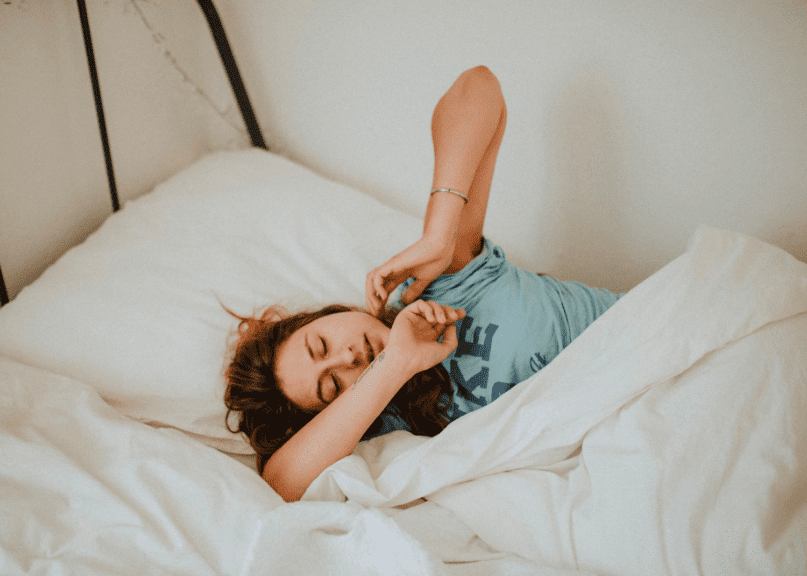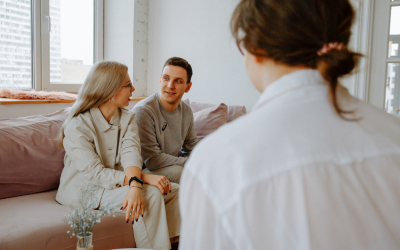
The Surprising Effects of Sleep Deprivation
This post may contain affiliate links, which means we may receive a commission, at no extra cost to you, if you make a purchase through a link. Please see our full disclosure https://www.rachelbutlercounseling.com/disclosure-privacy-policy-terms-of-use/ for further information.
Most of us have been there: waking up in the morning feeling groggy, tired, and grumpy because the alarm went off much earlier than we would like. While the ideal hours of sleep vary for every individual at different stages of life, the National Sleep Foundation recommends that an average adult should be receiving 7 to 9 hours of sleep every night[1]. But I get it, we have busy lives and sometimes our projects, assignments, and next-day exams can barricade us from our bed.
Missing a few hours of sleep occasionally won’t damage your health too much.. However, chronic sleep deprivation, which is defined by persistent reduced sleep that lasts longer than 3 months, can pose many health risks to your body.[8]
Let’s talk about a few unexpected side effects of sleep deprivation, and some helpful tips on how to get better sleep in the future!
Five Health Consequences of Sleep Deprivation:
- Lack of sleep can lead to weight gain. Recent research has shown that deprived sleep is linked to weight gain and obesity. A study in 2004 demonstrates that individuals who sleeps less than 6 hours a day are 30 percent more likely to be obese compared to those who sleep 7 to 9 hours a day. [2] This is because lack of sleep can stimulate appetite, especially cravings for food that are high in fat and carbohydrates, which can lead to weight gain.
- No sleep can mean no sex drive. Men and women who report to have deprived sleep schedules also report a lower interest in sex. Studies have shown that lack of sleep can cause sexual dysfunction in women and higher risk for erectile dysfunction in men. One of the reasons is because sleep can intensify mental health conditions such as anxiety and depression, which then negatively impact an individual’s sexual desire and level of arousal.[3]
- Sleep deprivation can lead to depression. A study in 2007 reported that individuals who suffer from insomnia, which is a sleep disorder that makes falling and staying asleep difficult, are five times more likely to also suffer from depression.[4]
- Lack of sleep can worsen your skin. If you have experienced a couple of nights of reduced sleep, then you probably know the feeling of waking up puffy eyed and with dry skin. This is because when you’re sleep deprived, your body will release stress hormones known as cortisol, which then breaks down your skin collagen. Collagen is an essential protein that keeps your skin hydrated, glowy, and smooth. [4]
- Lack of sleep can cause accidents. Statistics have shown that each year there are approximately 6,000 fatal car accidents caused by drowsy drivers. Additionally, a survey reported that 1 in every 25 adults have fallen asleep while they’re at the wheel.[5] Driving while sleep deprived not only puts your own safety at risk, but also the passengers who may be traveling in the vehicle with you. It is important to have enough sleep before you start your car engine.
Now that I may have scared you with these unexpected side effects of sleep deprivation, let’s talk about some tips that will prevent them and help you get better sleep every night!
Sleep Tip #1: Stick to a Sleep Schedule
One way to end the trend of inconsistent hours of sleep is to go to sleep every night at the same time (including weekends). Having a consistent sleep schedule can reinforce your body’s sleep-wake cycle that will allow you to fall asleep quicker every night![6]
Sleep Tip #2: Make a Bedtime Routine
You can actually “train” your body to prepare for sleep by creating and sticking to a bedtime routine. Some popular bedtime rituals include reading, drinking warm milk, and taking a shower or bath. Simply spend 20-30 minutes practicing this routine every night, it will make a big difference!
Sleep Tip #3: Limit Screen Time
As tempting as it is to scroll through your phone before you sleep, an extensive amount of screen-time can negatively impact your sleep. This is because both the light and the content displayed on the phone serves as stimulants to your brain, which means that lots of scrolling can make it more difficult for your body to relax and ease into sleep. [7]
While it may be difficult to find the best balance between work, life, and sleep, it is important to remember to take care of your body and let it have the rest that it deserves. If you need some additional assistance in helping you fall asleep, check out some of Rachel’s recommended products that can improve your sleep here.
To discuss how therapy could help you during this season of your life, please contact me or schedule your free 15 minute consultation.
Resources Used:
[1] Suni, E. (2022, April 13). How Much Sleep Do We Really Need? Sleep Foundation. https://www.sleepfoundation.org/how-sleep-works/how-much-sleep-do-we-really-need
[2] Prinz, P. (2004). Sleep, Appetite, and Obesity—What Is the Link? PLoS Medicine, 1(3), e61. https://doi.org/10.1371/journal.pmed.0010061
[3] Suni, E. (2022b, June 10). The Relationship Between Sex and Sleep. Sleep Foundation. https://www.sleepfoundation.org/physical-health/sex-sleep#:%7E:text=Sleep%20deprivation%20has%20been%20associated,risk%20of%20erectile%20dysfunction9.
[4] Sleep Loss: 10 Surprising Effects. (2010, February 18). WebMD. https://www.webmd.com/sleep-disorders/features/10-results-sleep-loss
[5] The Effects of Sleep Deprivation. (2021, October 21). Johns Hopkins Medicine. https://www.hopkinsmedicine.org/health/wellness-and-prevention/the-effects-of-sleep-deprivation
[6] Sleep tips: 6 steps to better sleep. (2022, May 7). Mayo Clinic. https://www.mayoclinic.org/healthy-lifestyle/adult-health/in-depth/sleep/art-20048379?reDate=17082022#:%7E:text=Stick%20to%20a%20sleep%20schedule&text=The%20recommended%20amount%20of%20sleep,your%20body’s%20sleep%2Dwake%20cycle.
[7] Elbert, T. J. (2020, March 5). 5 Tips to Fight Sleep Deprivation. New West Physicians. https://www.nwphysicians.com/5-tips-to-fight-sleep-deprivation/
[8]What Is Chronic Sleep Deprivation? (2020, July 26). Verywell Mind. https://www.verywellmind.com/an-overview-of-chronic-sleep-deprivation-4770156
Want to read more? Here are a few of my related blog posts you may be interested in checking out!
Check out some of the items mentioned in the blog post above, along with a few extra goodies we think you’ll love!




0 Comments